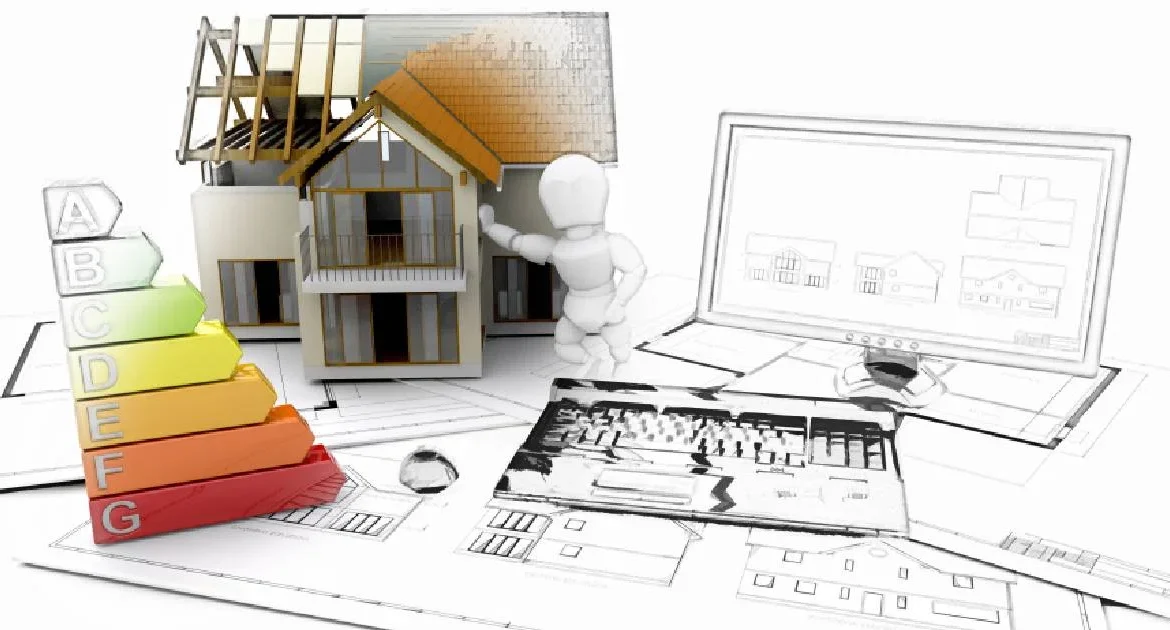Introduction
In the ever-evolving landscape of real estate, energy efficiency has become a crucial consideration for both homeowners and property investors. The Energy Performance Certificate (EPC) is a key player in this arena, providing valuable insights into a property’s energy efficiency. As we step into 2023, it’s essential for property owners and buyers alike to understand the costs associated with obtaining an EPC certificate. In this blog post, we will delve into the factors influencing EPC certificate costs and what to expect in the current year.
EPC Certificate
Secure your Energy Performance Certificate (EPC)! Our certified inspectors use cutting-edge technology for a comprehensive assessment valid for 10 years.
Understanding the EPC Certificate
Before we delve into the costs, let’s briefly revisit the purpose of the EPC certificate. This document assesses the energy efficiency of a property on a scale from A to G, with ‘A’ being the most energy-efficient and ‘G’ the least. The certificate includes recommendations for improving energy efficiency and reducing carbon emissions. It is a legal requirement for property owners to have a valid EPC when selling or renting out a property.
how long does an EPC certificate last?
An Energy Performance Certificate (EPC) typically lasts for 10 years in the United Kingdom. After this period, property owners are required to obtain a new EPC if they wish to sell or rent out the property again. It’s important to keep the EPC up to date, especially if there have been any significant changes to the property that could affect its energy performance. The certificate provides information about the energy efficiency of a property and includes recommendations for improving its efficiency.
How much should an EPC cost?
The cost of an Energy Performance Certificate (EPC) can vary depending on several factors, including the location, size, and type of property. Additionally, different providers may have varying pricing structures. As of my last knowledge update in January 2022, in the United Kingdom, for example, the cost of an EPC might range from £60 to £120 or more. It’s essential to shop around and obtain quotes from different accredited EPC assessors or providers in your area to get a better understanding of the prevailing rates. Prices may have changed since my last update, so it’s advisable to check with local providers or online platforms for the most current information. Keep in mind that the cost might also be influenced by the complexity of the assessment and the time required to complete it.
Understanding EPC Certificate Costs
Market Trends: The cost of EPC certificates can vary based on market trends, regional factors, and demand for energy assessment services. In 2023, it’s crucial to stay informed about current market conditions to get an accurate estimate of EPC certificate costs.
- Legislative Changes: Legislative changes can significantly impact EPC certificate costs. Governments may introduce new regulations or update existing ones, affecting the requirements for EPC assessments. It’s essential to keep abreast of any legal changes that might influence the cost of obtaining an EPC certificate.
- Type of Property: The type of property being assessed is a key factor in determining EPC certificate costs. Larger or more complex properties may require more time and resources for assessment, potentially resulting in higher costs. Understanding how property characteristics affect pricing can help property owners budget accordingly.
- Competition Among Assessors: The availability of certified energy assessors in a particular area can influence EPC certificate costs. A higher number of assessors may lead to increased competition, potentially driving prices down. Conversely, areas with fewer assessors may experience higher costs due to increased demand.
- Energy Efficiency Improvements: Property owners looking to improve their EPC rating might invest in energy-efficient upgrades. While these improvements can incur additional costs, they can lead to long-term savings on energy bills and positively impact the property’s market value.
- Technology Advancements: Advancements in technology can streamline the EPC assessment process, potentially affecting costs. Assessors employing cutting-edge tools and software may offer more competitive pricing, making it important for consumers to inquire about the technology used by assessors in their area.
What to Expect in 2023
- Increased Emphasis on Energy Efficiency: As global awareness of climate change grows, there’s a likelihood of increased emphasis on energy efficiency standards. This could lead to more stringent requirements for EPC assessments, potentially impacting costs.
- Technology-Driven Efficiencies: The adoption of advanced technologies by energy assessors is expected to continue. This could lead to more efficient and cost-effective assessment processes, potentially influencing EPC certificate costs positively.
- Market Fluctuations: Economic conditions and market fluctuations can impact EPC certificate costs. Property owners should be prepared for potential changes in pricing based on external economic factors.
As we navigate through 2023, understanding the factors that influence EPC certificate costs is essential for property owners and stakeholders. Staying informed about market trends, legislative changes, and technological advancements can help individuals make informed decisions about their energy assessments. By anticipating potential shifts in pricing, property owners can budget effectively and contribute to the overall energy efficiency of the built environment.



